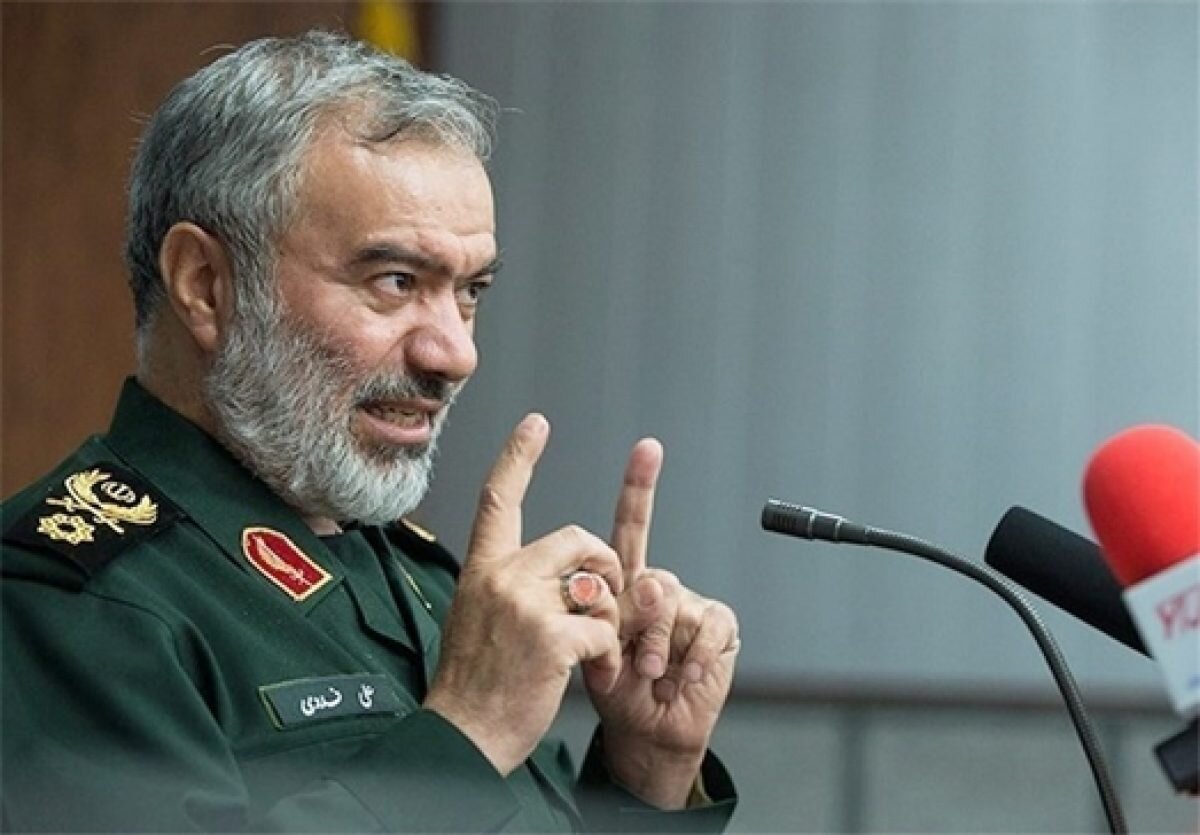Iran self-contained in meeting own defensive needs: IRGC deputy chief

TEHRAN- The deputy commander of the Islamic Revolution Guards Corps (IRGC) said on Thursday that Iran is innovative and capable of meeting its own defense needs.
Rear Admiral Ali Fadavi told Tasnim that the delivery of the “Abu Mahdi” missile to the IRGC Navy is an illustration of self-sufficiency.
Abu Mahdi is the first long-range cruise missile that can target enemy warships, he said.
In a ceremony last month, the Abu Mahdi cruise missiles were delivered to the naval units of the Army and the IRGC.
With a range of over 1,000 kilometers, the homegrown naval cruise missile has expanded Iran’s naval defense coverage zone by several times and allow the Navy units to broaden their operational range.
The Abu Mahdi missile stands out for its pinpoint accuracy, devastating force, ability to avoid marine terrain, and ability to penetrate an opponent’s air defense systems.
Known as the first long-range naval cruise missile whose trajectory definition and command-and-control systems have been equipped with artificial intelligence, the missile can streak at low altitudes for radar-evading maneuvers and alter its course and height in midair.
The massive warhead on the Abu Mahdi missile can destroy different vessels, frigates, and destroyers by striking the target from multiple angles.
The new missile, which is equipped with a strong integrated navigation system and a potent motor, can be launched from any point deep within Iranian territory to strike mobile naval targets.
The missile’s seeker features both active and passive radar homing systems, increasing its ability to engage targets with electronic warfare, boosting stealth, and transforming the missile into a specter that falls on targets undetected.
The Abu Mahdi launch system is capable of preparing and launching many missiles quickly, on a variety of trajectories, and from a variety of fixed and mobile launchers.
